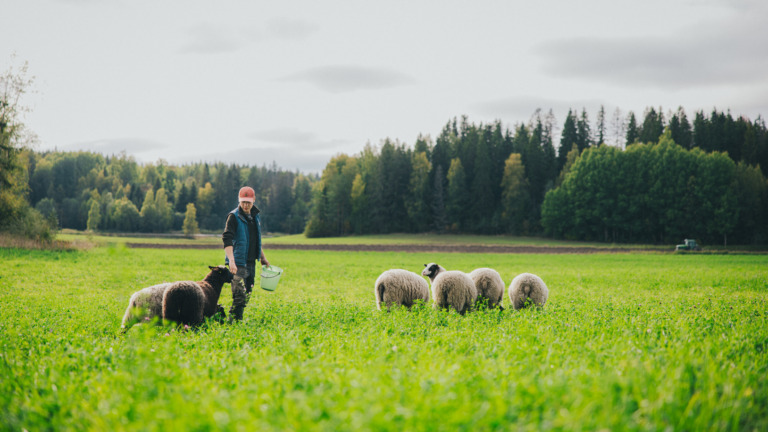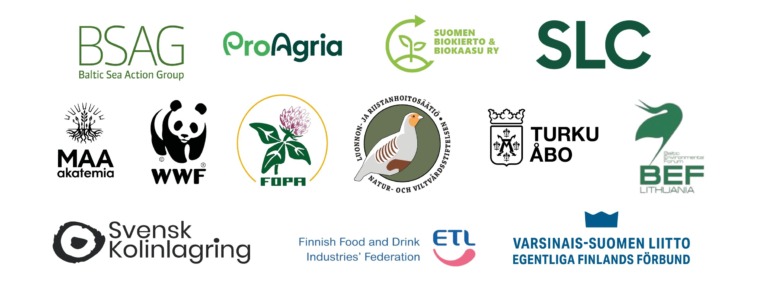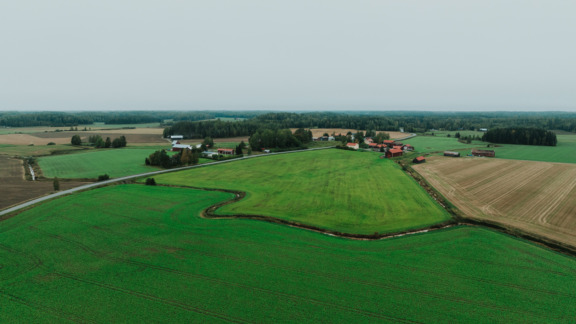Open letter: “Elevate the level of ambition of the Vision for Agriculture and Food”
Partners of the CAP Initiative approached Commissioner Christophe Hansen with their response to the Commission’s recently published Vision for Agriculture and Food. Read their letter further down.

Dear Commissioner Hansen
In times of uncertainty, there is an enhanced need for leadership and vision, and we therefore welcome the Commission’s Vision for Agriculture and Food. We would like to provide our insights into the conclusions and contribute to the best path forward. While acknowledging the merits of the vision, we believe space remains to elevate its level of ambition and impact.
The Vision for Agriculture and Food emphasizes the social and economic sustainability of agriculture and the food sector, and rightly so. Sufficient income, fair trading practices, and competitiveness are all key to ensuring the viability of farming and generational renewal. Yet, environmental sustainability is not a trade-off, but a precondition for our food system to flourish in decades to come.
The vision recognizes the importance of functioning ecosystems and presents sustainability as an opportunity, outlining an array of vital solutions. However, policy measures, priorities, long-term targets, uniform standards, the level of commitment to their implementation, and resource allocation could be clarified based on a comprehensive impact assessment. Simplifying regulations should help farmers and the broader food sector foster long-term competitiveness and sustainability. However, the simplification and rolling back conditionality in favour of voluntary measures or compensation schemes should support, and not undermine, reaching climate and environmental benefits.
As the Vision highlights, farming, food production, and nature are inextricably intertwined. Achieving the goal of a competitive, resilient, and future-proof agri-food sector requires balanced examination. Food safety and food security across the EU must not be compromised. Unfortunately, the vision lacks a comprehensive food chain approach and does not address key needs, such as an innovation-friendly environment for food companies, financial instruments for the twin transition, and skilled labour.
Environmental sustainability is not a trade-off, but a precondition for our food system to flourish in decades to come.
Europe is facing multiple crises at once. The Vision for Agriculture and Food clearly seeks to simultaneously address the climate crisis and biodiversity loss, resolve the agricultural profitability crisis, enhance food security and resilience, and safeguard vital water resources, yet it falls short in recognizing their interconnected nature. The agri-food sector is, as the vision acknowledges, a strategic sector, meaning its sustainability transformation is of utmost importance. Systemic analysis identifies key risks and opportunities, providing a basis for solutions that will help build a resilient agri-food sector in the coming decades.
We’re in full agreement with the vision regarding the need to reduce Europe’s strategic dependencies and de-risk supply chains. Strategic sovereignty remains out of reach if our food production relies on external inputs from unstable regions or adversarial nations to the extent we see today. The vision identifies a range of good measures to mitigate these vulnerabilities, including recycled nutrients. Farming that improves and regenerates soil health can help reduce our dependencies and generate multiple benefits not least in terms of resilience and profitability of farms by lowering expenses and diversifying income opportunities. Focusing on soil health and water management is necessary to ensure fertile arable land, a limited resource of vital importance for food security and the supply chain.

As the vision notes, it is crucial to consider regional differences and tailor policies to local conditions. By empowering authorities to adopt policies that reflect specific conditions, more effective and appropriate solutions can be developed, ensuring viable agri-food systems. Moreover, it is important to utilize the best practices and benchmarks already established by member states, farmers, advisory services, and companies. Scaling up best practices can unlock significant benefits for the entire food chain. Improved regulations could enable innovative and competitive production methods, cross-sectoral collaboration, modern technologies, such as remote sensing, and data-sharing opportunities as drivers for sustainable food production. It is essential to identify educational needs and provide support to enable farmers and food companies across Europe to leverage cutting-edge technologies.
The Strategic Dialogue on the Future of EU Agriculture laid the groundwork for impactful action, and further efforts to develop the agri-food sector would greatly benefit from building on its conclusions and adopting a comprehensive, whole-of-food-chain approach. Navigating these complex challenges is no easy task. Solutions exist, and new methodologies are continually being developed through science-based collaboration. Members of our coalition, representing a broad range of stakeholders, have identified win-win solutions that ensure food production is both economically and environmentally sustainable while reducing strategic dependencies.

CONTACT US





